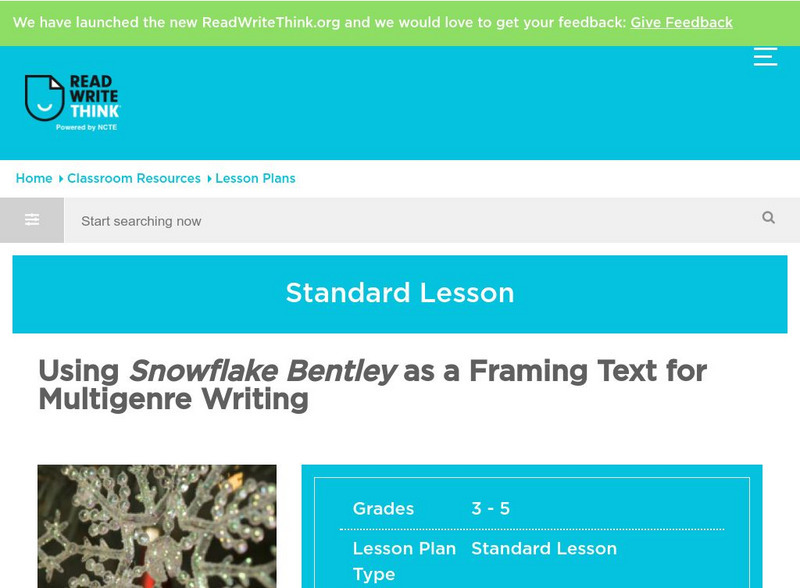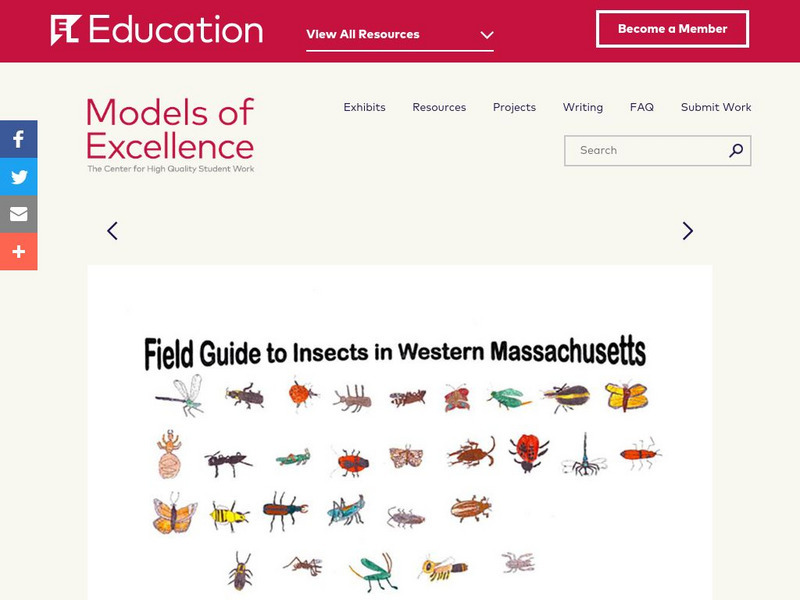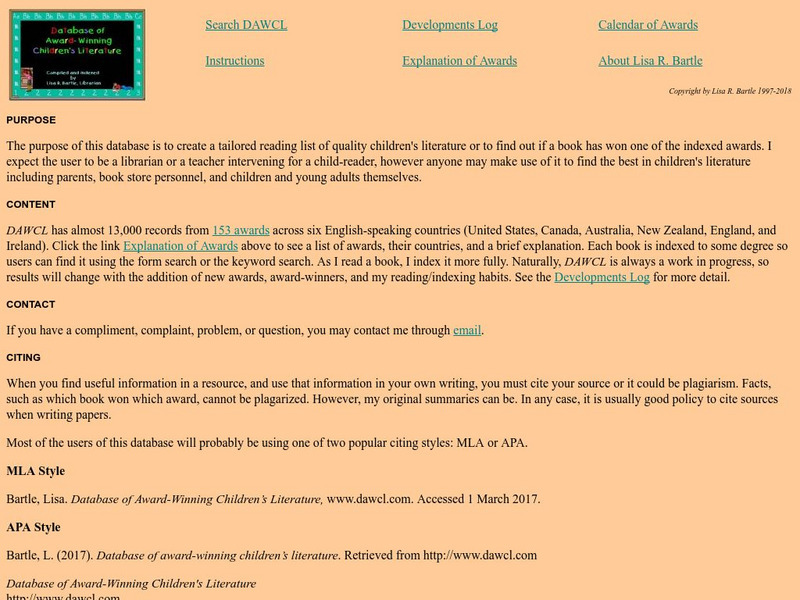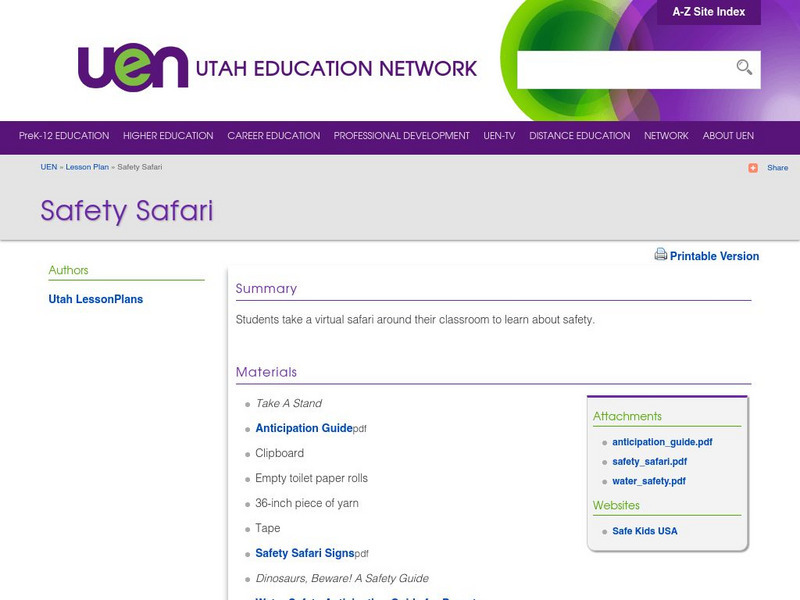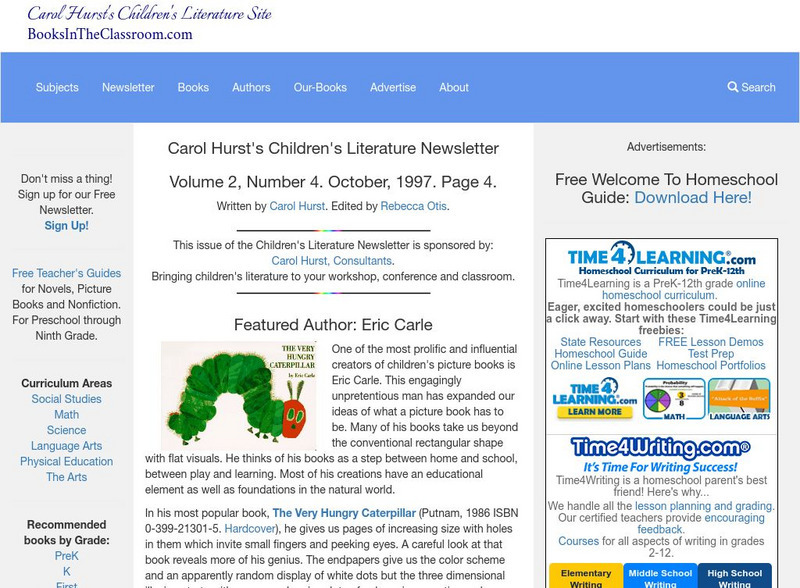ReadWriteThink
Read Write Think: Weather: A Journey in Nonfiction
Questions about weather clear up when young scholars use what they learned from their books to create a presentation to share with the rest of the class.
Read Works
Read Works: Grade 2: Two Lesson Unit: Explicit Information
[Free Registration/Login Required] Designed to teach students to identify explicit information in nonfiction and fiction texts. Lessons are based on the books Deserts (A True Book-Ecosystems) by Darlene R. Stille and The Stories Huey...
Read Works
Read Works: Main Idea 1st Grade Unit
[Free Registration/Login Required] Young scholars learn to use titles and supporting details in both fiction and non-fiction texts in order to identify the main idea of the book in this three-lesson plan unit. The lessons utilize the...
Read Works
Read Works: Explicit Information 1st Grade Unit
[Free Registration/Login Required] A two-lesson unit in which young scholars learn how to identify explicit information in both fiction and non-fiction texts. The lessons utilize the books Frogs by Gail Gibbons and Stellaluna by Janell...
Read Works
Read Works: Compare and Contrast 3rd Grade Unit
[Free Registration/Login Required] A three-lesson unit on comparing and contrasting through which students learn how to compare two items using key terms, compare and contrast two non-fiction texts on similar topics, and compare and...
Read Works
Read Works: Fact and Opinion 3rd Grade Unit
[Free Registration/Login Required] A three-lesson unit on fact and opinion through which students learn how to identify facts and opinions in different fiction genres. Students also use non-fiction texts to identify and verify facts and...
Read Works
Read Works: Genre 2nd Grade Unit: Encyclopedias
[Free Registration/Login Required] A instructional activity in which students use the book Children's Illustrated Encyclopedia edited by Jayne Parsons to learn to locate information and find facts about a subject in an encyclopedia....
Utah Education Network
Uen: Balanced Diet
In this lesson, 2nd graders will learn about the components of a balanced diet. Students will analyze charts and then self-report their own foods in categories. Several fiction and nonfiction books are listed as additional resources.
Scholastic
Scholastic: Listen and Read: Pediatrician
Listen and read along as a pediatrician describes how she takes care of children in this interactive book for early learners.
Read Works
Read Works: Grade 2: Three Lesson Unit: Author's Purpose
[Free Registration/Login Required] A series of three lesson plans designed to teach students to identify author's purpose including to entertain, to inform, and to persuade. Lessons are based on the books The Adventures of Taxi Dog by...
Georgia Department of Education
Ga Virtual Learning: Into Thin Air by Jon Krakauer [Pdf]
This is an 11- page PDF about Into Thin Air, Jon Krakauer's book about his experience climbing Mount Everest. It includes a short summary of the book, a biography about the author, book reviews, discussion questions, an interview with...
Utah Education Network
Uen: Cloud, Rain, and Fog
During these three days of lessons, 2nd graders will learn about weather from the nonfiction text by asking questions, and focusing on the text features of the book.
ReadWriteThink
Read Write Think: Using Snowflake Bentley as a Framing Text for Multigenre Writing
Using Snowflake Bentley as a model, learners create a working definition of multigenre text and then use that definition to create their own multigenre piece about winter or another theme.
Starfall
Starfall: All About Ducks
This interactive focuses on ducks including what they look like and what they do. Children can read independently or click on the ear to have sentences read to them.
Starfall
Starfall: Seals
This interactive focuses seals including where they live and what they eat. Children can read independently or click on the ear to have sentences read to them.
Starfall
Starfall: We Saw a Hawk
This interactive focuses a family seeing a hawk while camping. Children can read independently or click on the ear to have sentences read to them.
EL Education
El Education: Field Guide to Insects in Western Massachusetts
This field guide was created by 2nd graders in Springfield, Massachusetts. It was part of a two-month Learning Expedition that included field observation and collection, classroom experimentation and research, reading from books and...
Alabama Learning Exchange
Alex: Dewey Decimal Classification System Mural
Learners will select a book from an assigned section in the non-fiction area of the library. After reading the books, students will write a paragraph that summarizes the content area of the book. Learners will illustrate the book that...
PBS
Pbs Kids: Martha Speaks: Waste Not Want Not
Practice reading with Martha with this illustrated, read-along story about the environment and recycling.
Other
Database of Award Winning Children's Literature
This is a phenomenal resource. It allows the user to create a reading list of quality children's literature based of choices such as reading level, type of book, genre, ethnicity, gender, etc. In addition, one can determine if a book won...
Utah Education Network
Uen: Safety Safari
Second graders will engage in nonfiction reading and writing strategies that will help them describe and adopt safe and healthy behaviors. An anticipation guide, a song, and several high-interest trade books will engage the the readers...
Books in the Classroom
Carol Hurst's Children's Literature Site: Eric Carle
What do you know about Eric Carle, the author? This Carol Hurst site highlights some interesting facts about this author's life and refers to some of his books.
South Carolina Educational Television
Know It All: Non Fiction Text Features
Fifth graders will use non-fiction books to identify and explain how text features help them as individual readers.
EL Education
El Education: Insect Bookmarks
These bookmarks were created by 2nd graders at the Alice B. Beal Elementary School in Springfield, Massachusetts, as part of a two-month Learning expedition on insects. The learning expedition included field observation and collection,...


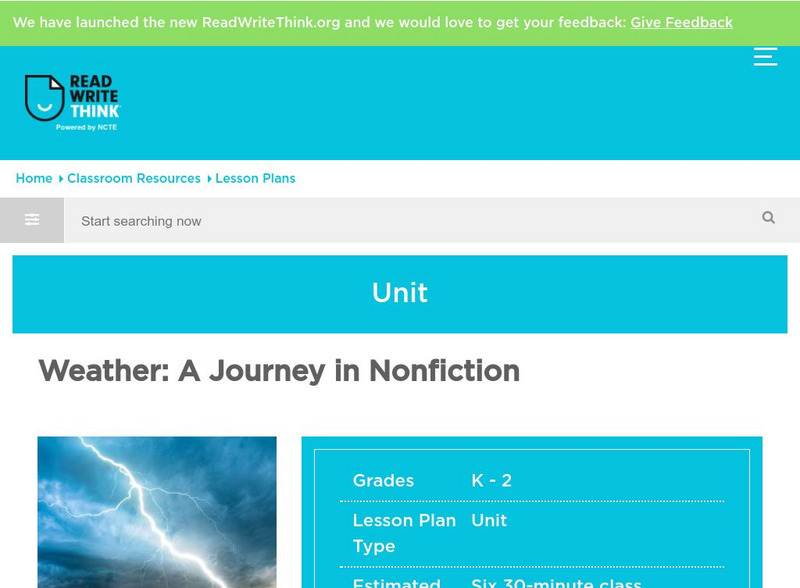
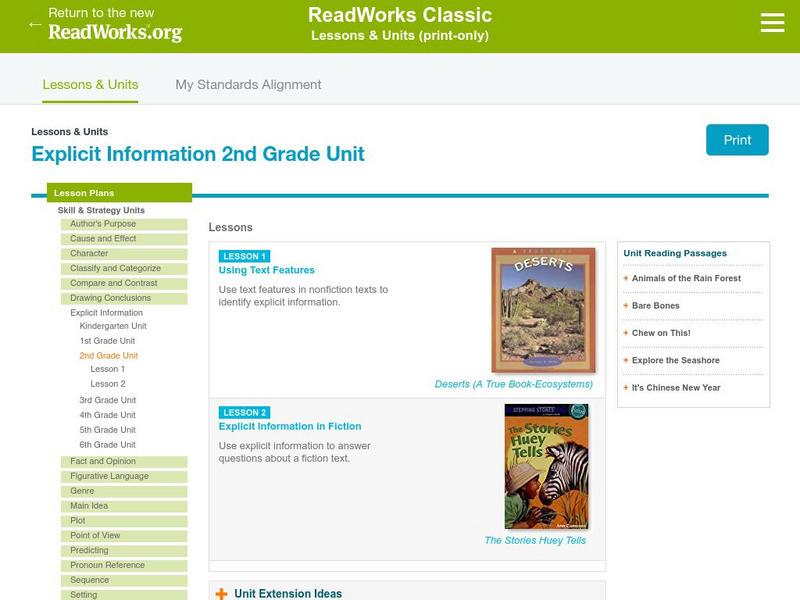




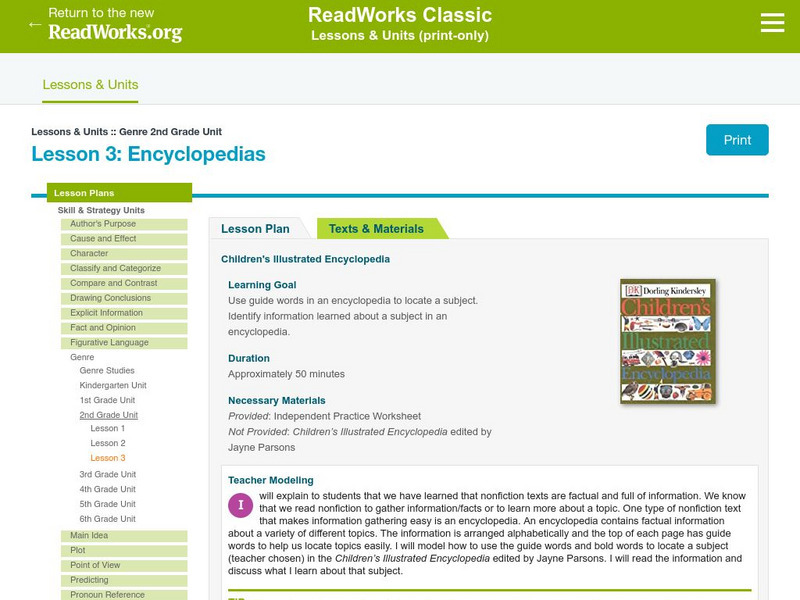
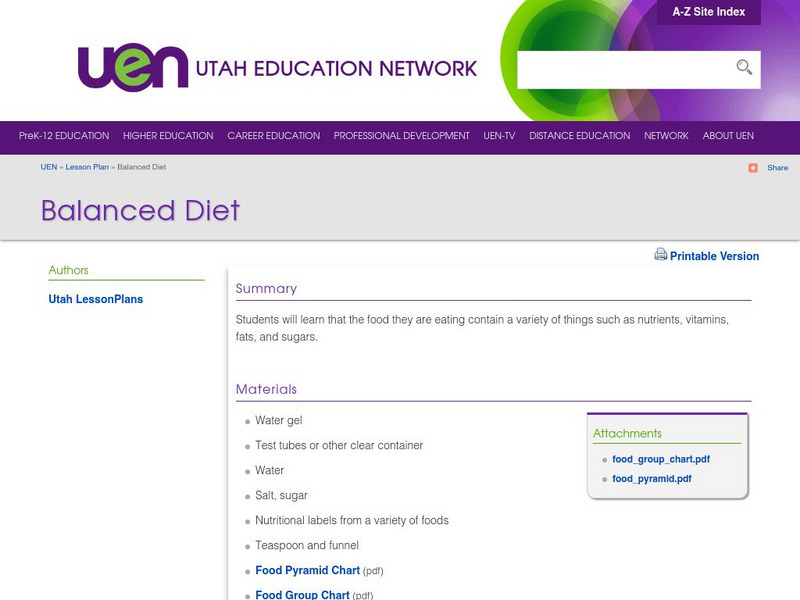

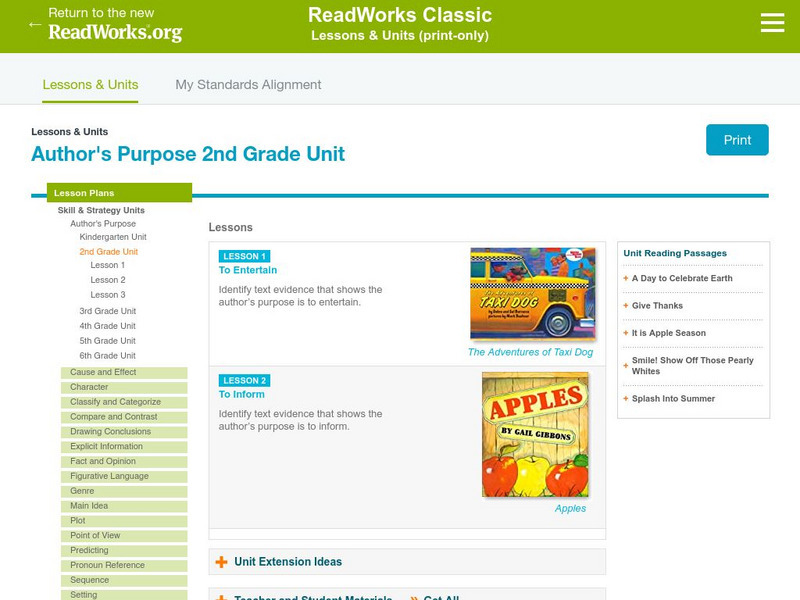
![Ga Virtual Learning: Into Thin Air by Jon Krakauer [Pdf] Unit Plan Ga Virtual Learning: Into Thin Air by Jon Krakauer [Pdf] Unit Plan](https://d15y2dacu3jp90.cloudfront.net/images/attachment_defaults/resource/large/FPO-knovation.png)

